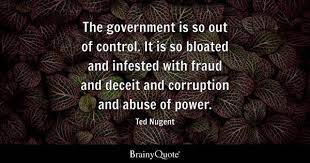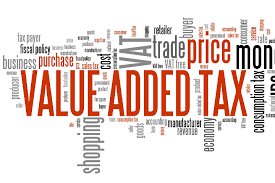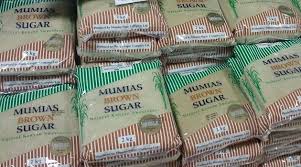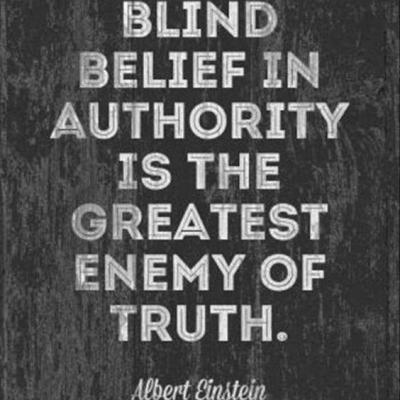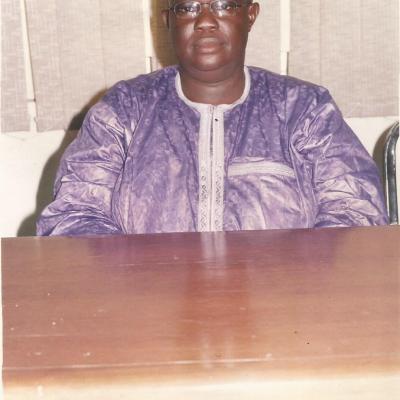Economy
-
It has been 100 days of torture and hardships for Nigerians-Comrade Emelieze
- By solomon2day
- On 14/09/2023
- In News
The 100 days of the present administration in Nigeria have been described as a period of torture, difficulties and hardships.
This is the submission of a former chairman of the Oyo state council of the Trade Union Congress(TUC) Comrade Andrew Emelieze. ''The first 100 days of this administration have been 100 days of torture, difficulties, hardships, sorrows and lamentations for Nigerians. The administration should come out with distinct and clear-cut policies that will take the country out of the deep pit it now finds itself.'' ''Nigerians are yet to feel the impact of the so-called distribution of palliatives in the states because of the dubious ways these palliatives were shared among those who know themselves. Almost nothing got to the majority of impoverished Nigerians,'' Comrade Emelieze declared.
-
Comatose Economy
- By solomon2day
- On 20/12/2021
- In Solomon's Column
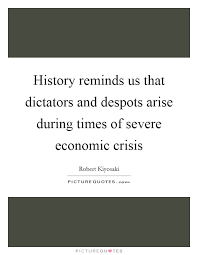 The development of infrastructure in Nigeria has over the years been unsuccessful due to the fact that the country is not an infrastructure-conscious space.
The development of infrastructure in Nigeria has over the years been unsuccessful due to the fact that the country is not an infrastructure-conscious space.In infrastructure development, the quality of the people is crucial,-initiative, prudence, ingenuity and foresight, all combined to guarantee a nation’s development.
Indiscriminate taxation would definitely have negative effects on the psyche of the people and certainly not an incentive for higher productivity.
A close and critical observation of the Nigerian economy exposes the inexperience, ignorance, mediocrity and docility of Those-in-Charge.
The trial and error policies of government has only worsened the coma state of the economy, regardless of the injury time shuttles abroad by government officials to attract foreign investments.
The Nigerian economy today, is a patient well over due for surgery.
Also read-Legalizing Crime and Criminality
-Landlords and Tenants Associations, Crime and Criminality
-
Between Wool and Crude Oil
- By solomon2day
- On 20/09/2021
- In Solomon's Column
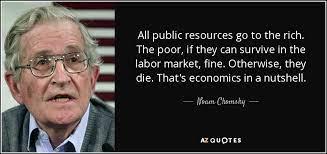 Woolen manufacture was England’s most prominent industry in 1750,while crude oil has been Nigeria’s major income earner for several years.
Woolen manufacture was England’s most prominent industry in 1750,while crude oil has been Nigeria’s major income earner for several years.
Stakeholders in the wool industry were based in the West Riding of Yorkshire,here cloths of medium quality were made, In East Anglia, here coarser fustian were produced and in South west of England,where fine and good quality cloth was made.Woolen cloth was a major export product and as a result the industry was closely regulated.
Production was still in the hands of small masters in the West Riding and East Anglia.
The export price of cloth was fixed as far back as the 10th century,and extraordinary steps were taken to disallow the export of the raw wool.
As the market for woolen cloth expanded,the ownership of capital and the control of credit gained prominence.
The cottage workers were financially incapable of purchasing large quantity of raw materials neither could they afford to sell the finished product on creditor source for market outside their homes.This brought about a more advanced form of capitalism which eventually replaced the cottage industry.In Nigeria today,the main export is crude oil and Those-in-Charge,their agents, proxies and cronies dictate happenings in the oil industry with impunity.
Interestingly, oil bunkering and smuggling is the order of the day and their stock in trade.
In addition,those with the power and means own crude oil refining companies abroad. Crude oil exported abroad for refining,are brought back in refined form as Petroleum Motor Spirit(PMS) for sale to unsuspecting Nigerians.
The unimpressive state of the economy,is perhaps, a sad reflection of the domestic and foreign interests the present administration represents.
Also read-Legalizing Crime and Criminality
-Landlords and Tenants Associations, Crime and Criminality
-
7.2 % VAT Increase : Millions of Nigerians will suffer-AWDROP
- By solomon2day
- On 25/09/2019
- In News
The Association of Water Well Drilling Rig Owners and Practitioners(AWDROP) has warned that any attempt to increase the Value Added Tax(VAT) by 7.2 per cent will have adverse effect on millions of Nigerians.
AWDROP made this position known through its National Public Relations Officer, Mr. Richard Adeyinka
‘’All Nigerians know that the Federal Government needs money, but it must thread with caution, considering the state of the economy. Any increase in VAT will affect all aspects of life negatively, the masses will suffer for it. At the present 5 per cent VAT the masses know what they are going through, what happens if it is now increased by 7.2 per cent ?.’’
‘’Democracy means government of the people, for the people and by the people. Government cannot stand alone without the masses, who voted those in government into power. It is advisable for government to look elsewhere’’, Mr. Adeyinka stated.
-
UN and Liberia Train Technicians on Price Monitoring
- By solomon2day
- On 23/05/2019
- In News
 The United Nations World Food Program (WFP) in Liberia, Authorities of the Ministry of Agriculture (MoA) and the Liberia Institute of Statistics and Geo-Information Services (LISGIS) have organized a two day Price monitoring training programme for technicians.
The United Nations World Food Program (WFP) in Liberia, Authorities of the Ministry of Agriculture (MoA) and the Liberia Institute of Statistics and Geo-Information Services (LISGIS) have organized a two day Price monitoring training programme for technicians.The training which was held at Gbarnga, Bong County for 30 technicians was aimed at enhancing price monitoring mainly for basic food commodities in Liberia.
The training was also aimed at capturing and facilitating experience-sharing and equipping MoA, and LISGIS field-level staff engaged in collection, analysis and reporting of market data to better communicate, while also ensuring that there is an improvement in the contents of the monthly market monitoring bulletins, and strengthen partnerships and networks.
WFP Liberia's Vulnerability Analysis and Mapping Officer, Mr. Emmanuel Anderson commended the Liberian government for its enduring partnership with the WFP on price monitoring activities.
''WFP has a global mandate to support some of the most vulnerable members of society, with different social protection interventions," Mr. Anderson stated.
He also said that Liberia was increasingly vulnerable to high food price shocks as has been witnessed since 2008, whilke stressing that the government has been concerned about the rise in food prices, and as such, it has been undertaking regular joint government-WFP market monitoring exercises for which an MoU was signed between the Liberian government (MoA, LISGIS) and WFP.
-
The Nigerian Economy and Governance
- By solomon2day
- On 26/11/2018
- In Solomon's Column
Nigerians are proud to live in a country with a land area of923,773km 2, with varied vegetation and types of soil, suitable for various agricultural purposes.
In 1960 and the years following, up till the early 1970s, Nigeria's economy was between the agricultural friendly ''grassroots'' and the ''white collar'' city oriented centre. All that had to do with the production of goods were concentrated in the city, while a large percentage of Nigerians resided in the villages, with farming as their major occupation. The villages, then, lacked major amenities of life.
Governance during this period, was with a chain of challenges. Then, most of the earnings from export were from agriculture, while 65 % of Gross Domestic Product(GDP) also came from the sector. Nearly 50 % of Government revenue in 1960 could be traced to agriculture.
Today, as in the 60s, the provision of quantitative and qualitative education, quality health care delivery and the absence of social and economic infrastructure, are just a few in the long list of challenges that confronts Government.
In 1973, when crude oil emerged as the mainstay of the economy, government took a ''nap'', having noticed the 'light at the end of the tunnel '.
That 'nap', was at great cost, as can be seen in the unfolding events of the present time. In 1980, crude oil constituted 81.1% of Government revenue and 96.1% of export earnings.
Indeed, the growth of the economy was tied to projected earnings from crude oil exports, this was despite the fact that signs had began to manifest on the imminent collapse of crude oil prices in the international market.
With fiscal and current account deficits, occasioned by falling crude oil prices, resulting in internal and external imbalance, the only option open to Government is to borrow from international financial institutions.
-
Prices of Local Sugar Go Up in Kenya
- By solomon2day
- On 29/06/2018
- In News
As the Kenyan Government intensifies its clampdown on contraband products, traders have increased the prices of local sugar.
A kilo of sugar in western Kenya now sells for between Sh10 and Sh20.
Consumers now avoid brands from factories that have links with the controversial importation of sugar. A 50kg bag of Sony sugar now goes for Sh5,500, up from Sh4,300.
The Government had two weeks ago, seized a consignment of contraband sugar in a warehouse in Eastleigh, Nairobi.


